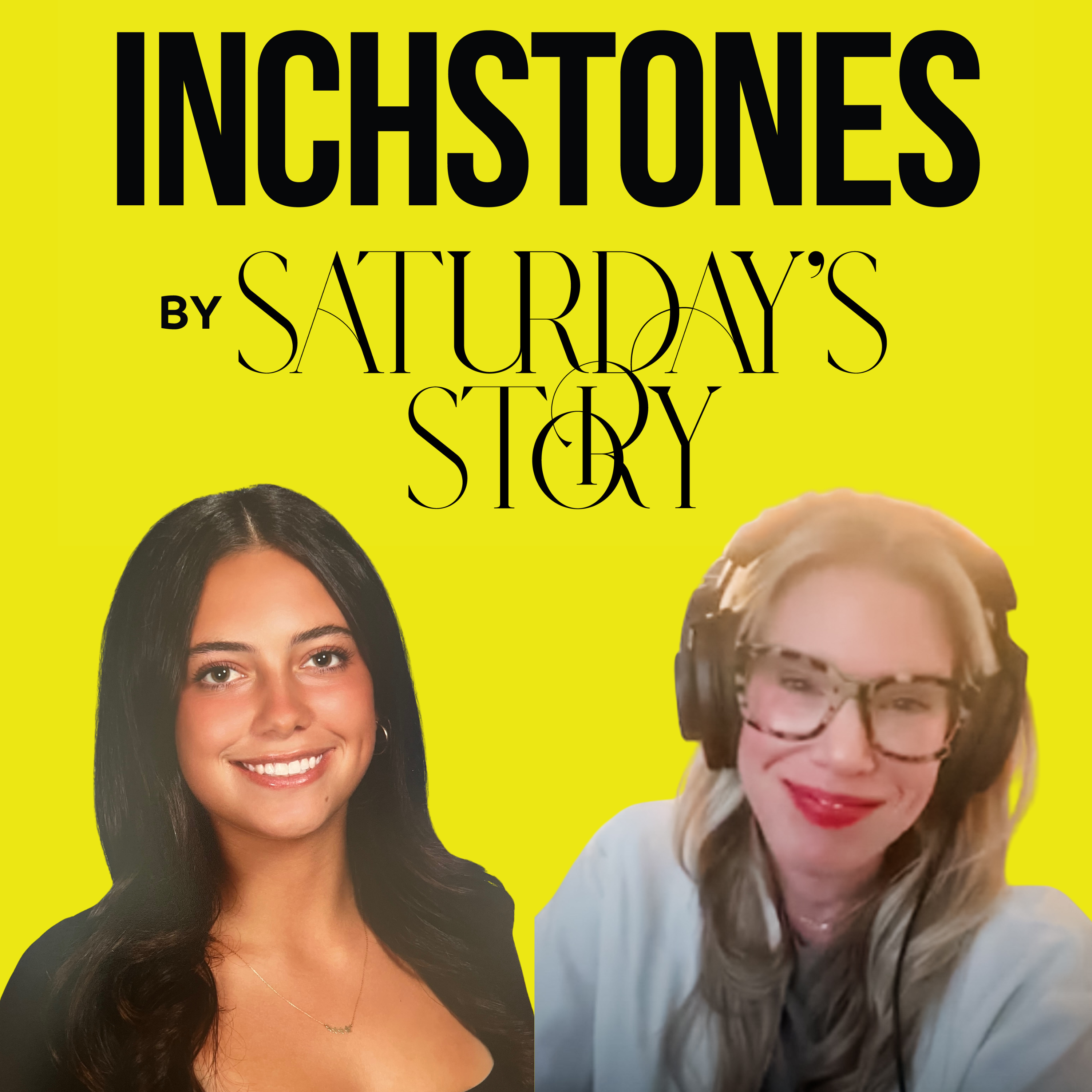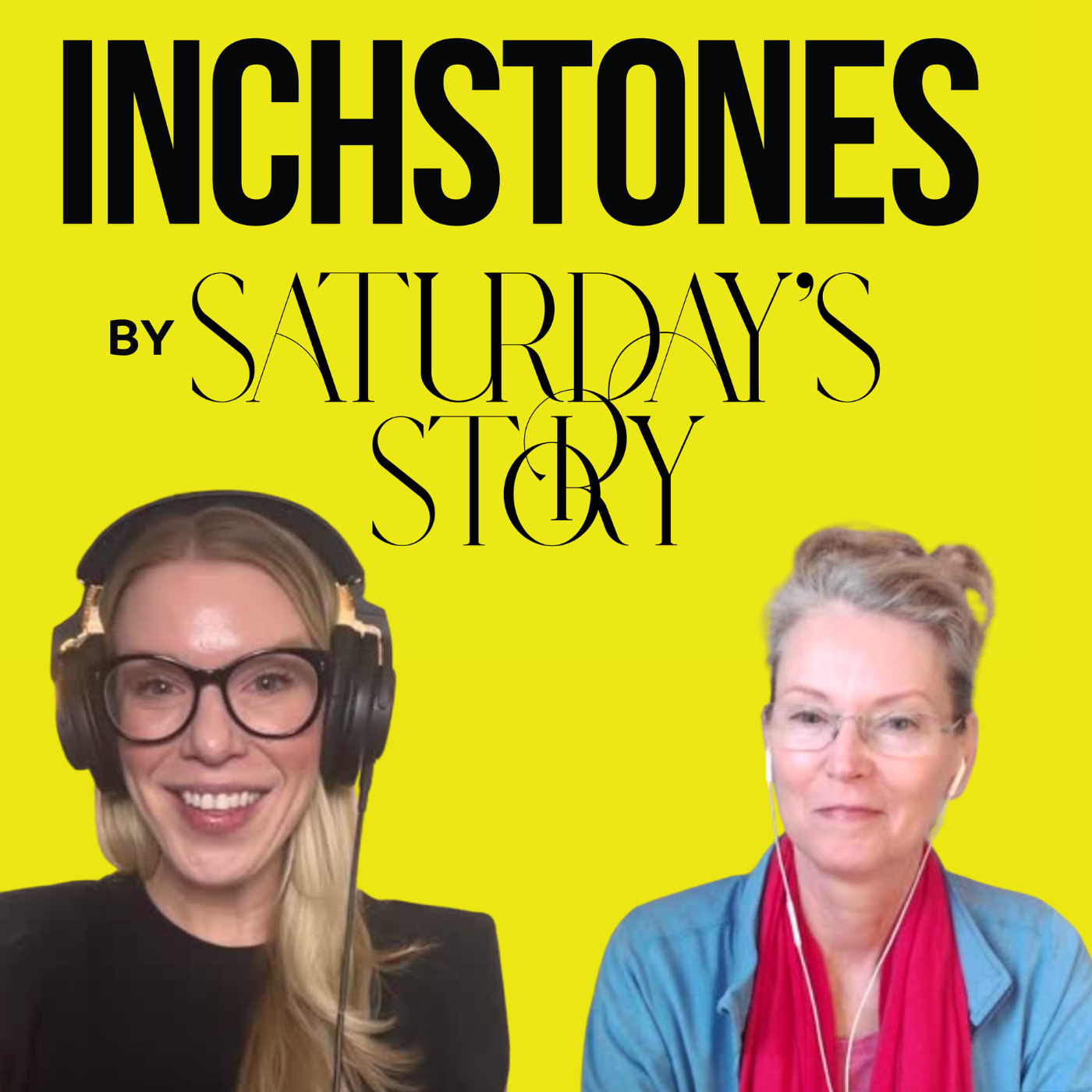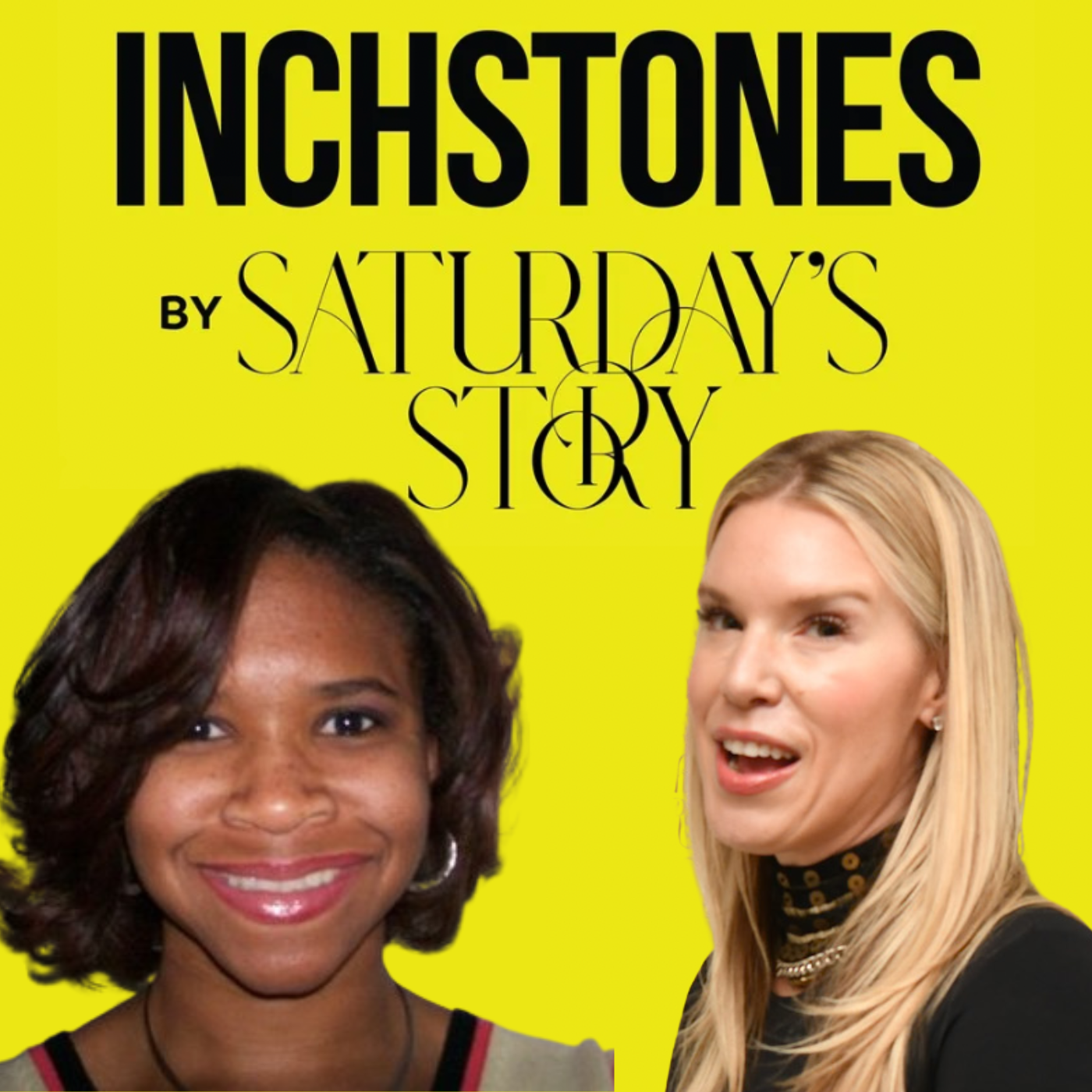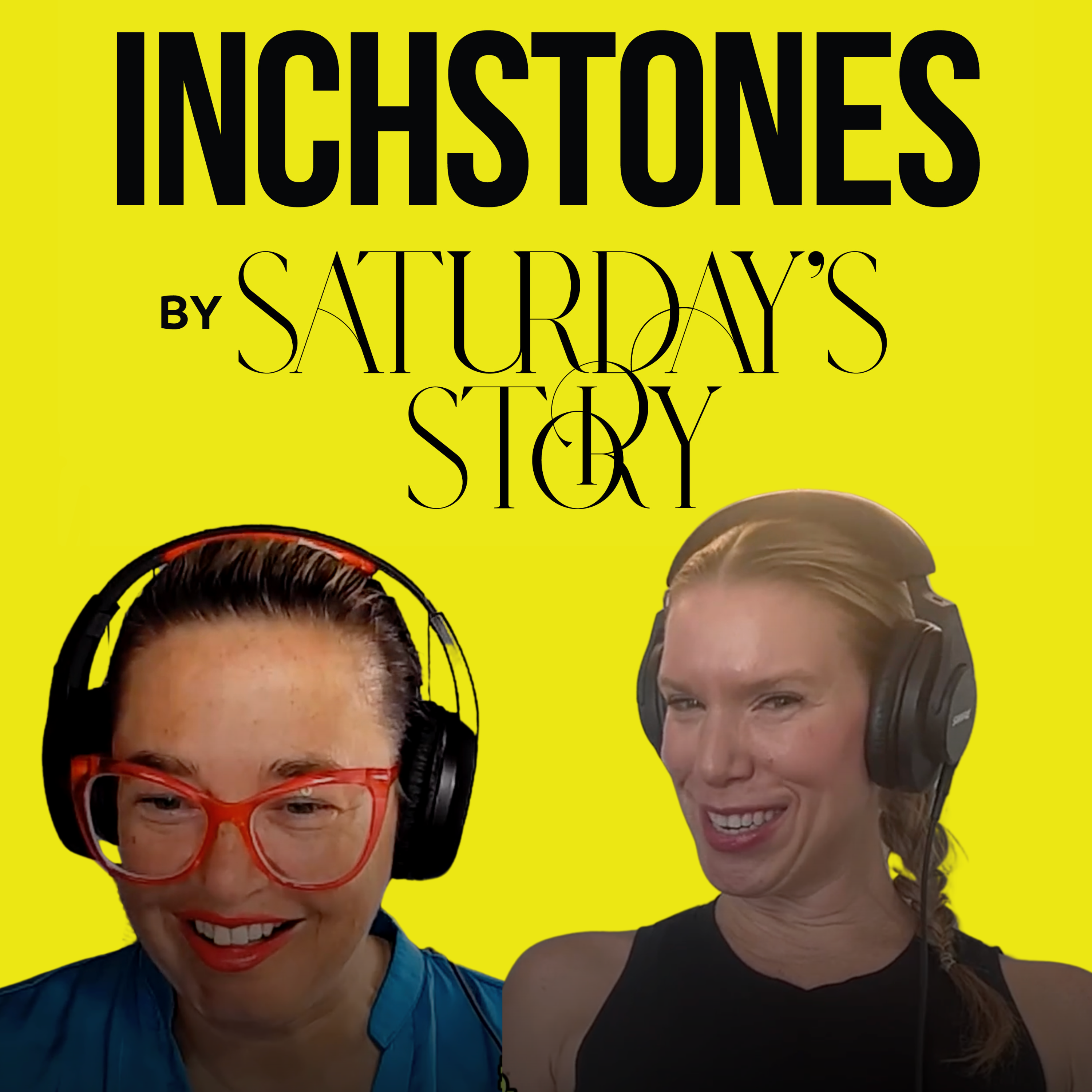Episode Transcript
[00:00:01] Speaker A: Okay, this is the coolest inch zones podcast guests I have. Like, no, literally, you're the coolest. This is my former high school babysitter, now freshman at Penn State University, Lindsay Levitt.
There's Linds. She's in her freshman dorm room. That, like, literally is carbon copy from mine 25 years ago. I get a lot of questions, and I've shared with you lens that, you know, how did you find and trust an 18 year old to help you watch Mack and Millie? And I know you and I can delve into how, you know, people post things on Facebook for sitters and stuff. But at the end of the day, what did you think made you most confident to say yes to a family like ours?
[00:00:42] Speaker B: I think, well, when I first came in, obviously I met you guys in person and I came to the house and I think just seeing the environment of your just, like, house in general, how, like all the kids, I said hi to everyone and you made me feel very comfortable and safe. Also, Penn State alum, very helpful.
But, yeah, like, at first, when I learned about the, like, Mac and Millie, I think I was obviously hesitant because I had never been in that situation before. Like, I.
[00:01:20] Speaker A: You've been a counselor at a sleepaway camp for a number of years and attended. So you've worked with kids.
[00:01:27] Speaker B: Yeah, I'm a counselor. I did stuff at my temple with working with kids. I babysit a lot. But I had never worked with anybody with special needs before. So when I first learned about this, I was a little hesitant because I didn't know if I would be able to necessarily, like, handle it. So after I met, like, your whole family, I went home and I talked to my mom about it. And obviously my parents were a little hesitant at first too, because they're like, you've never done this before. Like, are you sure this is something you want to do? And I thought about it and I just thought it'd be a really good experience, like, learning experience for me, like, to get more experience in that area, I guess thought it'd be good. And also I feel like I do a really good thing by helping out because I know that it's not as easy necessarily to find a babysitter for special needs, you know.
[00:02:25] Speaker A: Well, I think. I think that you were leaning in. And what I love, and I'm so thankful for, is that you saw it as an opportunity to learn more. Yeah. And I mean, I'm sure, like, you know, what would. What would be, like, two things that, you know, after spending a year with us after school, and running around the therapy. What are two things that you're. I totally learned X, I totally learned Y. Like without a doubt about autistic kids in, in general is that they're the.
[00:02:52] Speaker B: Same as regular kids. They like to watch tv, they like to go on their iPad, play their games. Like they fight as siblings. The same thing that everyone. And like normal kids. I think the only thing that's like different is your approach on how to like get them to the bathroom or feed them at meal times, like stuff like that. But on like basis there, it's the same as dealing with regular kids. Like you have to give them a little more attention and like bring them to the car. But it's the same as you would if you had young kids.
[00:03:28] Speaker A: It's not that I think, I think though that your, your acceptance of that, but also sharing that is so big because I talked to other mom friends of mine who wouldn't have had the same outlook that you even had or would actually even share that. Because even after interacting with them, because I think they are, they are just typical kids. Like autism is just one part of who they are. But like they, they do exhibit very typical things. I always say, like, what is autism for Mac and Millie and what is just them being a 9 and 6 year old set of siblings? You know, you also got to get really close with and help out with my typical daughter Morgan and how, you know, sensitive she is to her siblings needs. How do you feel like that role evolved too in being sort of this extra set of hands, mommy's helper, but like also just integrating into my, my oldest daughter's life as well.
[00:04:25] Speaker B: I think especially Morgan made me feel like I was like part of the family. Morgan's like a younger sister to me. Yeah. So I love having like, I have a younger sister too, but she's not as into.
[00:04:39] Speaker A: Well, that'll evolve. That'll evolve with you guys in age too. Like your sister's gonna be your best.
[00:04:43] Speaker B: Friend at some point. Yeah. Like, it's really nice that Morgan, like, she obviously looks up to me so much and I love hanging out with her. And also I think seeing the way that she interacts with Mac and Millie, like, it's honestly amazing to see she's so mature for her age. Like I worked at when I was at camp with kids the same age as her and their maturity level is nothing like Morgan's. It was very nice.
[00:05:12] Speaker A: I always say Morgan's superpower that she doesn't realize yet is that she's got to experience some really emotional things about her siblings being different. And she doesn't even know that she carries that yet.
[00:05:25] Speaker B: He has no idea.
[00:05:26] Speaker A: She has no idea that she carries that. But it's going to become such a strength of hers as she, as she ages. And I'm not saying it's easy. Like I just was talking to someone, another mom who is a thriving fashion influencer in Connecticut and I said, you know, the irony is that no one wakes up and goes, you know what? I want to give my typical child two siblings with non speaking autism. Like, nope, Morgan wouldn't choose that. I wouldn't have chosen that for her. But that she is learning from that too. And I think that in seeing you enter our family's world gave her a lot of, I think that like it gave her a lot of peace knowing that a young woman that she can look up to, that's a babysitter, but also this older sister role, that you accept Mac and Millie for who they are, it allowed her to do that more because you're this typical beautiful, fun, like energetic teen who she's. I want to be like that. And that girl also loves to take care and help mom out with Mac and Millie. That's a huge thing. And I, but I go back to your age and the desire to work, you know, with, with us. And it's really nice to hear you say that. You see them being typical in some ways too.
[00:06:37] Speaker B: It's. Yeah, I'm, as I said, like when I would have my friends like babysit, like sometimes I would ask my friends and they'd be no, like I could never do that. But like it really is explaining to them that like you, you're not doing things much different from babysitting a typical family, if you would even say that. Yeah, you have to change their pull ups and feed them. But like other than that, it's, you're playing games with them, you're watching TV with them, they love your phone. Same thing.
[00:07:06] Speaker A: I've noticed and I think I might have told you this in person, that when I give a talk to a company and whether it's all women, all men, a variety of parents, that your generation, which are you young Gen Z?
[00:07:21] Speaker B: I have no idea.
[00:07:22] Speaker A: Your generation's emotional capacity for differences is so beyond what I'm a geriatric. I'm like an old, old, old millennial. Right. Like I'm the oldest of millennials.
I don't think we're shown the ease of which acceptances and differences can be. Do you think that your generation do you think that part of your ability to have a mindset of, like, acceptance to Mac and Millie's autism and their differences was because of how you at being your age allows for. Because I wonder, when I was in school, I didn't know about autism.
[00:07:57] Speaker B: I think being in this generation, there's more awareness of it. So now disabilities are more incorporated into, like, TV shows and like, mass media.
[00:08:11] Speaker A: Just talked about it. Yeah.
[00:08:12] Speaker B: And talked about more. So I think that kind of led me to be. Feel more acceptance for it.
[00:08:20] Speaker A: Right.
[00:08:22] Speaker B: I also think, like, it's from, like, my parents teaching me when I was younger. Like, you don't, like, judge people about that kind of stuff. And it's. Yeah, it's normal. Like, I mean, because some of my friends wouldn't have done this, obviously.
[00:08:37] Speaker A: Right. And I think that, that, you know, there's. There's limiting beliefs about what it could actually entails.
[00:08:43] Speaker B: Yeah.
[00:08:43] Speaker A: You know, I, I like to think that, you know, setting you up for success was knowing that I was always a phone call away or that there was. There was nothing, because I would never. I would never make, like, someone that's helping me and my family and specifically Millie and Mac do something that I haven't done myself.
And that's. That's like a huge takeaway. And people spend a lot of money getting specialized, like, respite care for their special needs kids, and not only just one, but then having two. And they want these, like, specialized practitioners to watch them. And I, And I agree that there's. They're helpful and they can provide, like, a level of care that's, like, very necessary in some ways, but in other ways, trying to say we're just another family, too, that needs an extra set of hands and it's going to look different. And if you can push the anxiety of, like, the, well, what if they're this? What if they're that? And knowing that, like, it is a team working together, it can be fine. Like, all right, I'm going to go. Here you go. Here, we'll see you back at the house kind of thing.
[00:09:40] Speaker B: Yeah. And also, like, I feel like as a parent to, like, just like, regular kids and babysitting. You're far more reachable. And if I ever had an issue, I always. You would call me back in, like, a second or text me back in a minute. Like, never had any worries about that. I've babysat for families where the parents just, like, don't respond the entire time. Like, even if you're having, like, really big issue. One time I was really sitting and like the dog, like, pooped on the carpet and then it was like running. It was a whole thing. And the parents wouldn't respond.
[00:10:10] Speaker A: I always say that having Mack and Millie has peaked, like in the sense of like, P, E, a K, E, D or P, I, Q, U, E. I don't know, whatever piqued my. Piqued my sensitivity to helping others that are helping me, whether it's supporting other special needs parents or in, you know, like being accessible to a babysitter or to, you know, being accessible to my kids, teachers. Like, it's just something that I feel.
I feel I owe. I feel I owe anyone that is a part of mine and my children's life, specifically Millie and Max. Like, I owe that attention to it because of. I know how big of an ask it is to incorporate into our family, which honestly, it's weight and gold in other ways too, because I find I'm a better attentive friend or I'm a better attentive, you know, partner. I'm a better attentive mom to Morgan because I'm extra attentive to Mac and Millie. And it's like that muscle gets flexed, right?
[00:11:09] Speaker B: Yeah. I feel that has happened to me as well. Like, after working with Mack and Millie, I feel like I'm just. I'm more inclined to, like, help people out. I just feel like. I don't know, I feel like it made me like a better person kind of.
[00:11:23] Speaker A: Well, that. And I mean, that makes me really happy to hear because it's. Again, no one. No. You know, I was 29 in New York when I had Morgan. Two and a half years later, Millie was coming along. And at 30 years old, 31, I was never, you know, what I want is, you know, to have kids with autism. You don't think about that, but what it's given me and I. And I love that you say that. It does. If you engage with them, it makes you a better person because it makes you think about yourself. And that is something also that I hope to always lead with as a mom is like choosing to engage, getting typical or the typical world to engage with Millie and Mac to grow. Like, for us, it's good because they need to be able to get outside the house. Like, we need to be able to live, we need to be able to travel, we need to go to Disney World, we need to do all the things, go to New York, have brunch, blah, blah, blah. But it also allows the world to not be so have worries or anxieties about Engaging with kids on the spectrum.
[00:12:20] Speaker B: Yeah. Seeing them, like, do same things that you would say a typical person would do, I think kind of increases everyone's acceptance.
[00:12:28] Speaker A: Yeah. And I think, like, down the road, like your generation, being able to.
Your having a experience as you did, helping us out as a family and being an extra set of hands and beautifully and doing it and wanting to learn about it is only going to make. And this is such a broad statement. It's going to make the workers.
When you are leading, when you're in a company, think about how companies can incorporate kids like Mac and Millie as they become adults. Now I think about my friends that are big in fashion or friends that have companies that are on supply chain stuff. And I think, well, Millie and Matt can do that one day. And it's only going to be greater because of young adults like you who are going to go through college and have an understanding of. I wonder what they could do at a company.
I don't know if you know this step, but, like, the statistics are that autistic individuals that are hired for jobs actually stay at their job.
Like, the retainment of autistic individuals is so high because they love doing the same thing over and over again. Like, I can't. You can't you picture if you're like Millie, all these pink shirts have to be done this way and put in this box and taped at the box. And it's gonna be hell. It's gonna be hell to teach her to do it, though. Right. It's gonna be like getting her to learn that is gonna take a long time. But her then doing it, once she.
[00:13:45] Speaker B: Learns, she'll love to do it.
[00:13:47] Speaker A: She'll love to do it. And that, like, that gives me such.
[00:13:51] Speaker B: What, she'll do it with the blue shirts?
[00:13:53] Speaker A: Exactly. And she'll know that and she'll have such confidence in it. And so it's, like, cool to see that because of young adults like yourself who've leaned in to understand differences and the diversity and cognitive diversity differently, it'll make for better outcomes for kids like Millie and Mac. I believe it 100%. So what company will you own and hire them for?
[00:14:14] Speaker B: I want to be finance company.
[00:14:16] Speaker A: All right, well, Millie probably can count to 10 for you and, you know, and she'll do it over and over and over again. Lindsay, thank you for providing a perspective on this. I think that whether I. Whether there's one other special needs mom out there that I can give a sense of peace and calm into what my choice was and then allow them to try something new that would help their family is always. Was always a win. And you were such a. You were such an easy, beautiful choice for us. And we're. I'm endlessly thankful for the role you are in all the kids lives. So thank you. We're number three, baby. I can't believe it. I can't.




